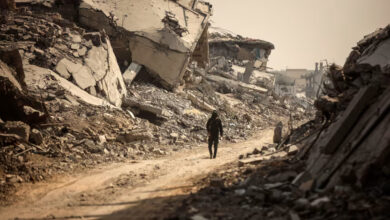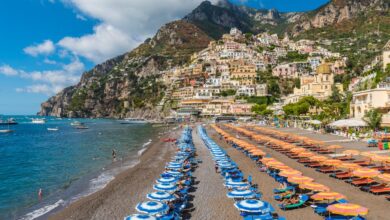
The head of the UN-backed Libyan government told top European Union officials on Thursday the bloc must provide more money and other assistance to secure Tripoli's help in curbing the flow of African migrants to Europe.
Prime Minister Fayez al-Sarraj was in Brussels on the eve of an EU leaders' meeting in Malta where they will throw political weight behind new efforts to curtail the arrival of refugees and immigrants from Africa, through Libya to Italy.
The bloc is stepping up the training of Tripoli's coast guard and offering more money and aid to Libya and other African countries to seal their borders so migrants seeking better lives in Europe do not get through.
But Sarraj, in joint statements with European Council President Donald Tusk who will chair the EU summit in Malta on Friday, said this was not enough.
"We hope that the EU mechanisms to help Libya will be more practical. We are not going to mention the amount of money that … dedicated to Libya for this help because they are very humble, very small amounts," he said.
MIGRATION DEAL
The EU has not given an overall figure for aid to Libya, but it has seen only a fraction of the maximum of 6 billion euros ($6.5 bln) pledged last year to Turkey in a deal that slashed arrivals of people from the Middle East to Greece.
"Now it is time to close down the route from Libya to Italy," Tusk said.
Sarraj also suggested he could ask foreign vessels to enter Libya's territorial waters depending on aid he would get to build up the navy. For now, an EU mission runs in international waters only, including to intercept smugglers' boats.
The deadly route across the Mediterranean is now the main gateway to Europe, with some 181,000 arrivals in 2016. It is run by smugglers who operate with impunity in Libya, which slid into chaos after the overthrow of Muammar Gaddafi in 2011.
But getting a migration deal with Libya is difficult.
Sarraj's government is struggling to establish control and is contested by various factions, including by the powerful warlord Khalifa Haftar, who is being courted by Russia.
The bloc is looking at whether it can give funding to the UN refugee and migration agencies – UNHCR and IOM – to improve conditions for refugees and migrants in the camps, which are run by the government and militias alike.




